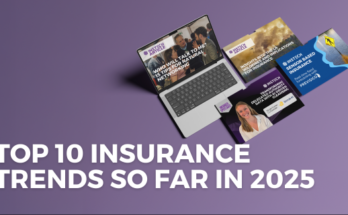🚗 Swiss Car Insurance Market — 2025 Overview
- The total gross written premiums for motor vehicle insurance in Switzerland are projected at US $6.94 billion in 2025, with average per‑capita expenditure around US $779. Growth is expected at ~1.7% CAGR through 2029, reaching ~US $7.4 billion.
- In euros, the Swiss motor insurance market is estimated at roughly €6.32 billion in 2025, growing modestly thereafter
📈 Why Premiums Are Rising in 2025
- In early 2025, major insurers—including AXA, Zurich, Helvetia, Bâloise, Generali, Smile, Vaudoise, Postfinance, Mobiliar—announced increases of up to 20%, citing inflation, higher repair and spare-part costs, and advanced technology in modern vehicles.
- Spare parts costs alone rose about 16% since 2022, while labor and garage rates continued rising.)
🧾 Coverage Types & Modern Trends
- Standard packages include:
- Civil liability (compulsory)
- Partial casco (fire, theft, glass)
- Full casco (collision, damage)
- Optional add-ons like roadside assistance or bonus protection
- There’s a growing shift to usage-based and telematics insurance (pay‑as‑you‑drive or behavior-based pricing), using driver data to tailor premiums and incentivize safe driving
- The introduction of automated driving (Level 3)—permitted from March 1, 2025 on certain motorways and parking zones—raises new questions around liability, influencing how insurers underwrite and price policies.
🏢 Key Providers in 2025
Major players in Swiss car insurance:
- Zurich Insurance, Helvetia, Bâloise (soon merging into Helvetia‑Bâloise Holding by Q4 2025), AXA, Generali, Mobiliar, Smile, Postfinance, Vaudoise.
- Mobiliar (a cooperative insurer) and Smile (fully online) are favored by some customers for transparent, flexible contracts and efficient service.
💬 Consumer Experiences & Tips
- Policyholders report notable increases: 5–7% annually or up to 11% over two years (Allianz, AXA), sometimes reaching 20–30%.
- A common practice is to request a fresh quote online—especially with Zurich—which often yields lower premiums than renewal rates for long-standing customers.
- Be aware of the Prämienanpassungsklausel (premium adjustment clause)—in many policies, premium changes allow early termination even mid‑contract. Always check cancellation terms.(
- Community advice recommends obtaining multiple quotes annually, and informing insurers you’re comparing offers—this triggers negotiation leverage.()
- Cancellation rights: Swiss law caps contract enforceability at three years—longer terms are common but cannot be binding beyond that; consumers may cancel after three years no matter what.()
📊 Quick Market Recap
| Aspect | Insight for 2025 |
|---|---|
| Market size | ~US $6.94 billion gross written premiums |
| Avg per person cost | |
| Growth forecast (CAGR) | ~1.7% through 2029 |
| Premium changes | Up to 20%+ hikes across major insurers |
| New trends | Usage-based tools, AI underwriting, automated driving insurance considerations |
| Major companies | Zurich, Helvetia (soon with Bâloise), AXA, Generali, Mobiliar, Smile, etc. |
| Consumer tips | Compare annually, negotiate, leverage cancellation window |
✅ Practical Recommendations
- Review your renewal terms early (typically notified by Nov/Dec); you can often lock in current rates before hikes take effect.
- Request new online quotes each year—even from your existing insurer—to check if you pay more as a long‑term customer.
- Leverage cancellation rights and clauses: act promptly if premiums increase; claim your right to early termination under Prämienanpassungsklausel.
- Opt for usage-based plans if you drive infrequently or safely—this can reduce costs and reward good behavior.
- Prioritize customer service, not just price: many note excellent service at Mobiliar or online-first Smile.
🧭 Outlook to 2029
- Expect steady but modest growth in the car insurance market (~1.7% annually) with innovation in personalized telematics-based offerings.
- As automated vehicles gradually become legal in controlled environments, insurers will adapt underwriting, premium models, and liability handling.
- Consumer expectations will push for digital-first, tailored, and sustainable insurance products.


